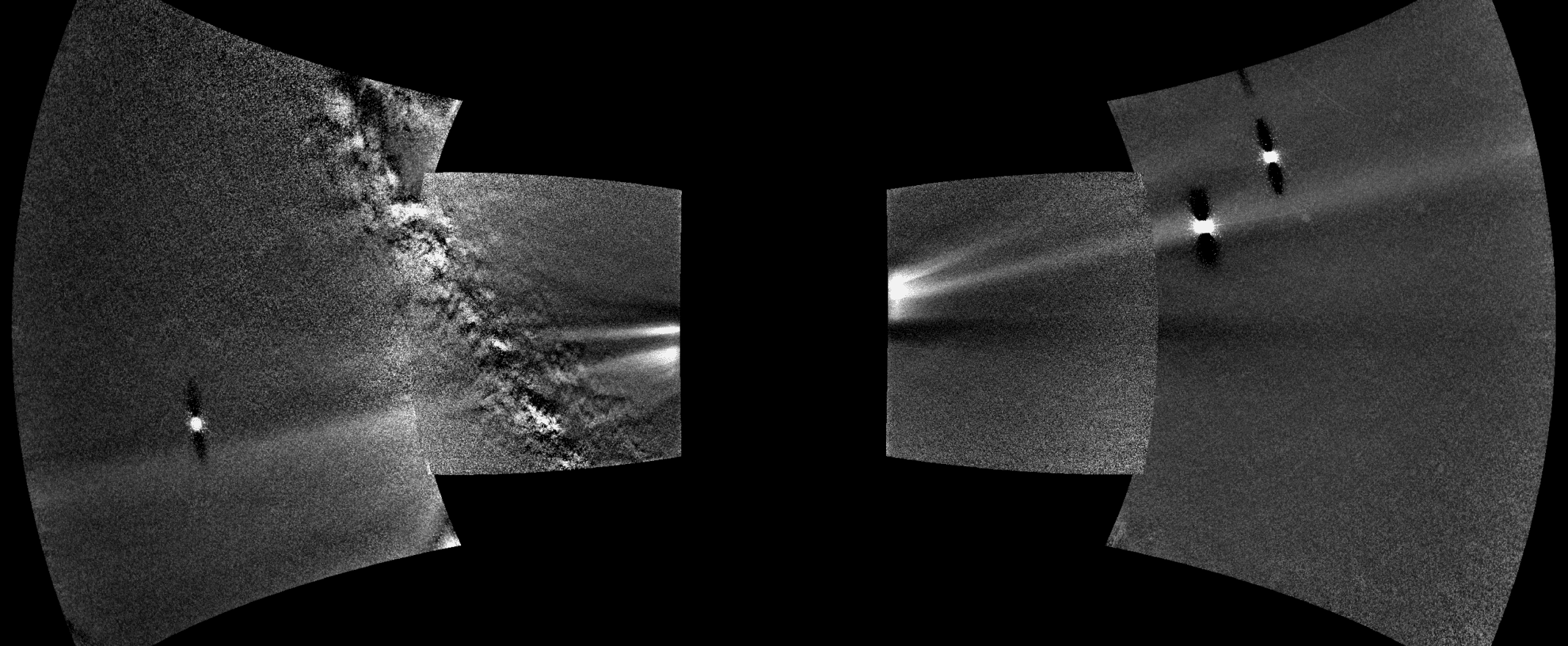
The Parker Solar Probe mission (PSP) has completed seven orbits around the Sun. Recently, the probe captured the first complete look of Venus’ orbital dust ring. This dust ring is a collection of microscopic dust particles circulating the Sun along Venus’ orbit.
The image of solar wind is seen with Parker Solar Probe‘s WISPR instrument. Scientists, at first, used image processing to remove the dust background and stars from the images.
This process proved to be compelling enough that the dust ring of venus was subtracted as well. The dust ring appears as a bright band stretching across the images.
Parker solar probe then performed rolling maneuvers to manage its momentum on its way to its next solar flyby. Because of changes in the orientation of its cameras, scientists detected the static dust rings.


The brightness of the ring help scientists estimates that the dust along Venus’ orbit is about 10% denser than in neighboring regions.
Previous observations made by the German-American Helios spacecraft and NASA’s STEREO mission allowed scientists to develop new models of the origins of dust along Venus’ orbit.
Parker Solar Probe’s sensitive imagers and unique orbit have given scientists an unprecedented peek at Venus’ dust ring—something the science team aimed for since the mission’s early days.
Journal Reference:
- Guillermo Stenborg et al. Pristine PSP/WISPR Observations of the Circumsolar Dust Ring near Venus’s Orbit. DOI: 10.3847/1538-4357/abe623
Continue reading The first complete look at Venus’ orbital dust ring on Tech Explorist.

0 comments:
Post a Comment